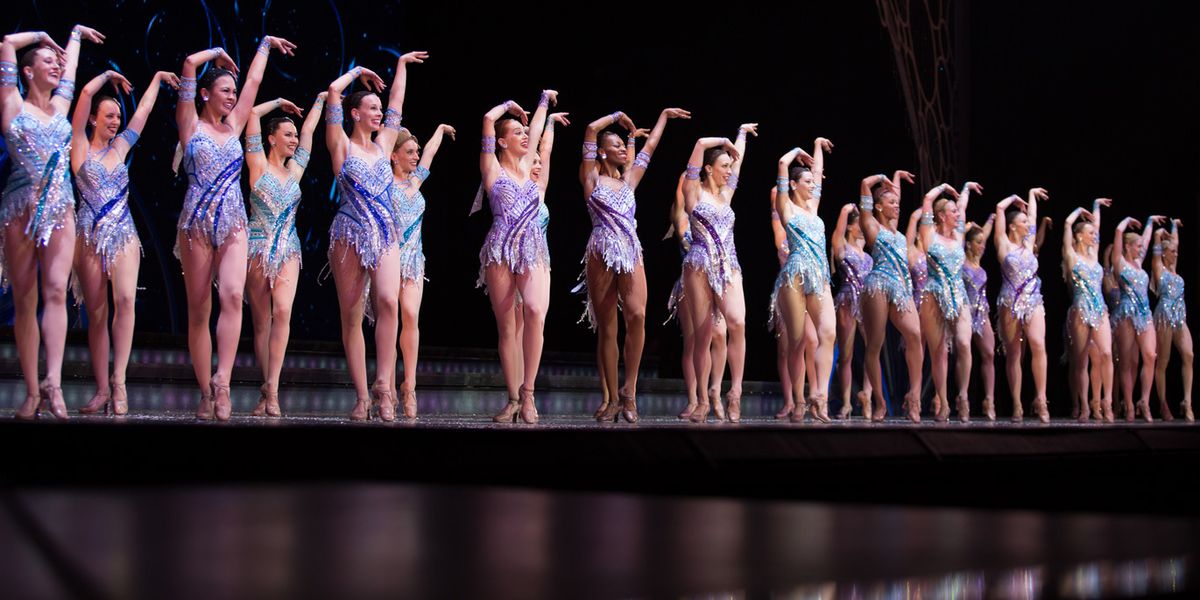How to Become A Rockette, According To the Coach Who's Trained 36 Of Them
After 12 seasons dancing with the Rockettes, Rhonda Kaufman Malkin knows a thing or two about becoming one of Radio City’s iconic dancers. Since 2006, Malkin has shared her secrets to success as a dance coach and personal trainer in New York City through her company Fusion Exercise. She’s had 36 students book the Rockettes, and numerous others land Broadway shows, national tours, commercials and even Beyoncé’s tour.
At the most recent Rockettes callback, over half of the 25 dancers had taken class with Malkin—and seven of them were offered contracts. Here’s how to get to Radio City, according to Malkin.
1. Identify your strengths and weaknesses.
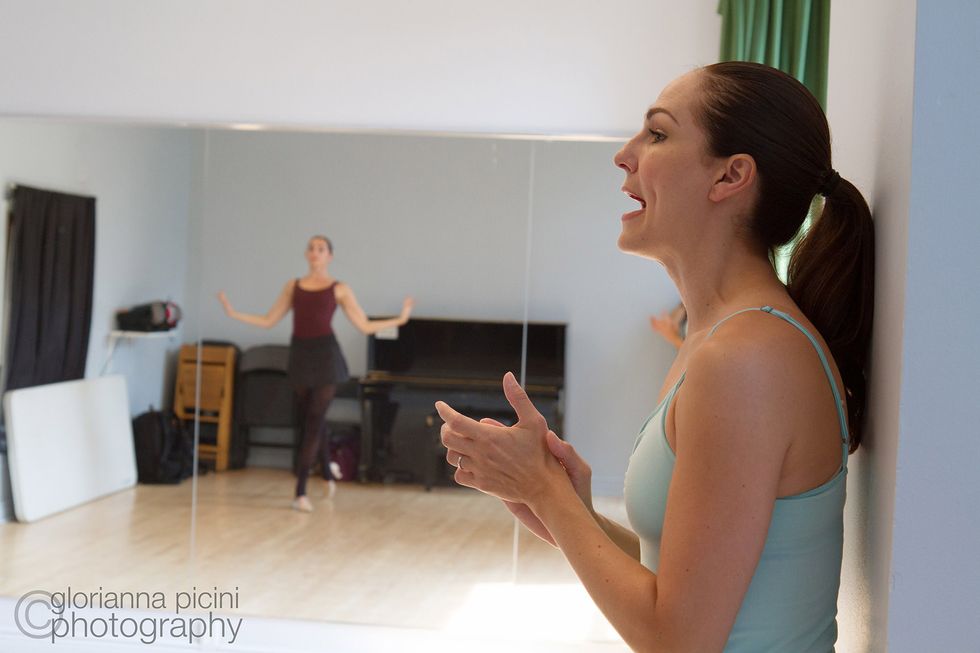
“Some dancers have great ballet technique, but their jazz or tap skills may not be as strong, so I hone in on those areas,” says Malkin. For others, taking extra ballet classes to improve lines and alignment may be the missing puzzle piece.
2. Get in shape.
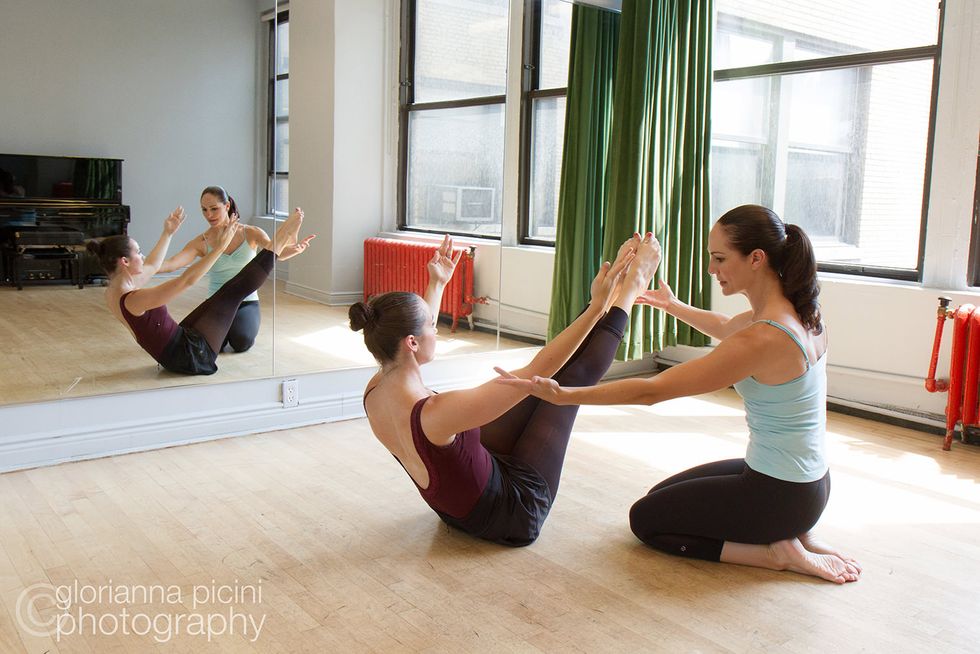
If a dancer is out of shape—lacking endurance, muscle tone or flexibility—Malkin switches on her personal trainer side to guide them back on track. “If you don’t walk into the audition ready to put on the costume, you won’t get work,” she says. “Directors never think, ‘Maybe if we give her two weeks she will look the part!'” More important than physical appearance is the overall strength benefits reaped from cross training—fewer injuries means more time to give 100% to training, auditions and eventually that dream job.
3. Dress the part.
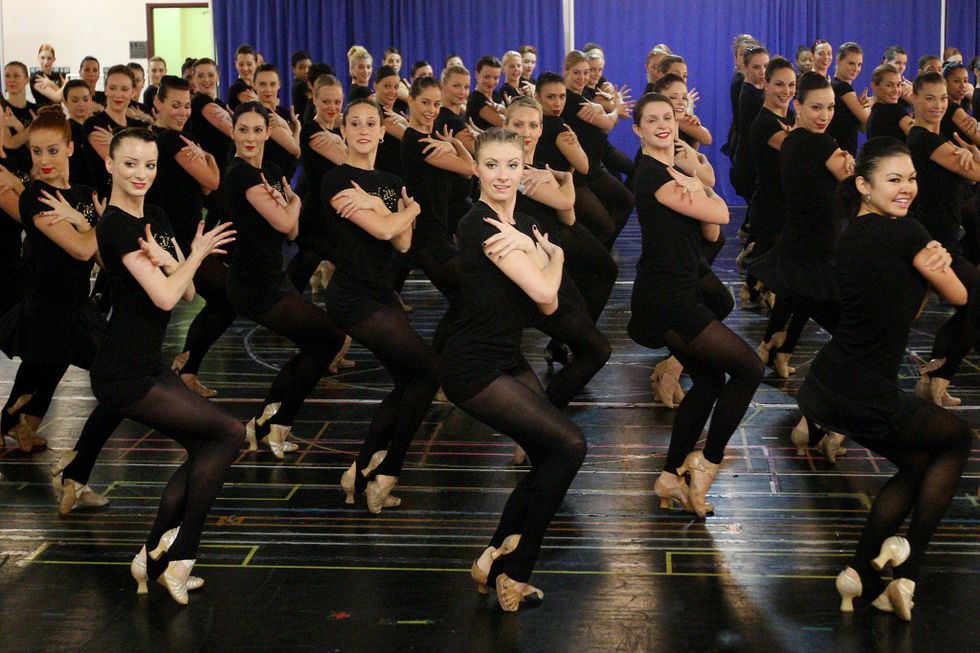
Based on Malkin’s experience, wearing trendy items—like thigh high boots or crop tops—might make a dancer stand out, but not always in a good way. “The current Rockettes director is very traditional, so I advise my students to wear a leotard, flesh color tights, and nude heels, with hair in a French twist,” says Malkin. Makeup should be done as though “you are going on a date with the hottest person you know.” Let your talent, hard work and love of dance set you apart.
4. Don’t be discouraged if you can’t tap.
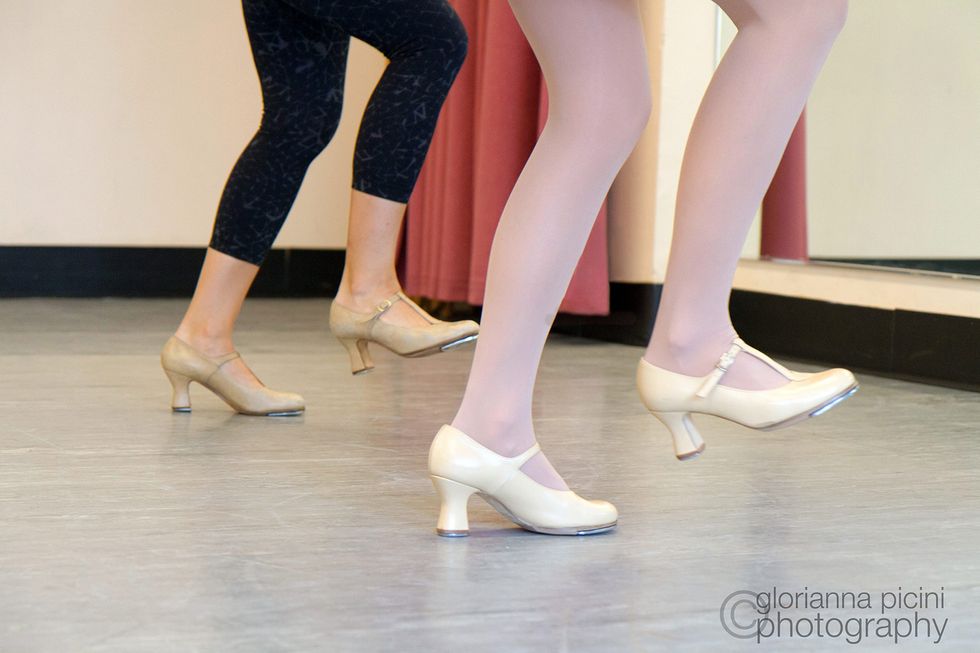
Some dancers shy away from auditioning for the Rockettes or classic Broadway shows because of their lack of tap skills. Malkin has had at least 10 students come to her with zero tap training who later booked the Rockettes. One student performed with a modern company for five years, and called Malkin saying she wanted to book the Rockettes. “She was hungry, focused and practiced my steps as well as taking additional tap classes,” recalls Malkin. “She booked the job within eight months.”
5. Skip contemporary class.
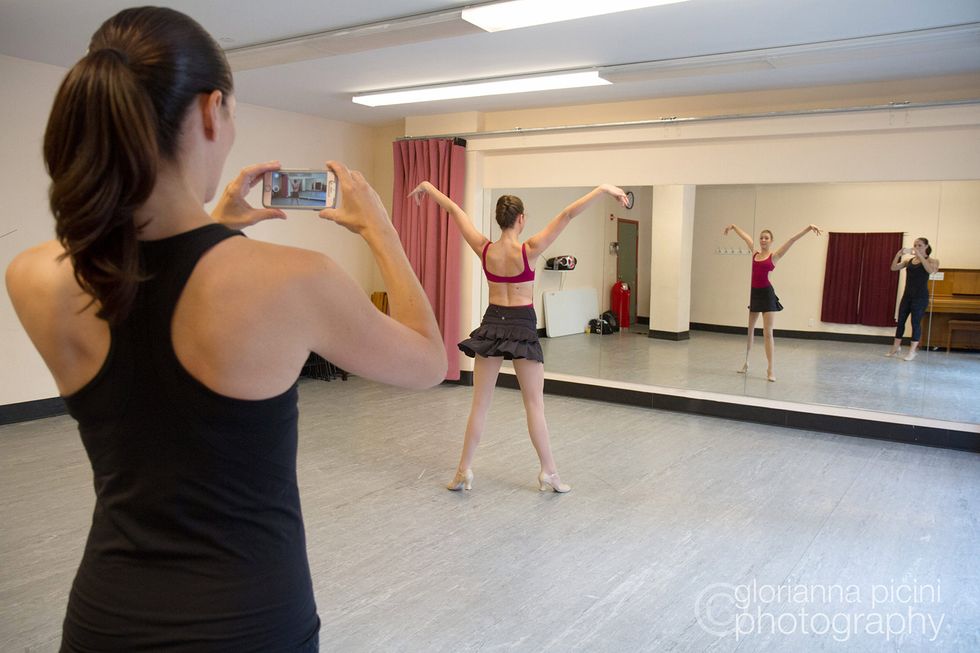
Over the years, Malkin has observed increasingly popular contemporary styles decreasing dancers’ abilities for precision, accurate counting and attack. So if a dancer is focused on becoming a Rockette or booking a classic Broadway show, Malkin strongly discourages taking contemporary classes.
6. Approach learning choreography as a skill.
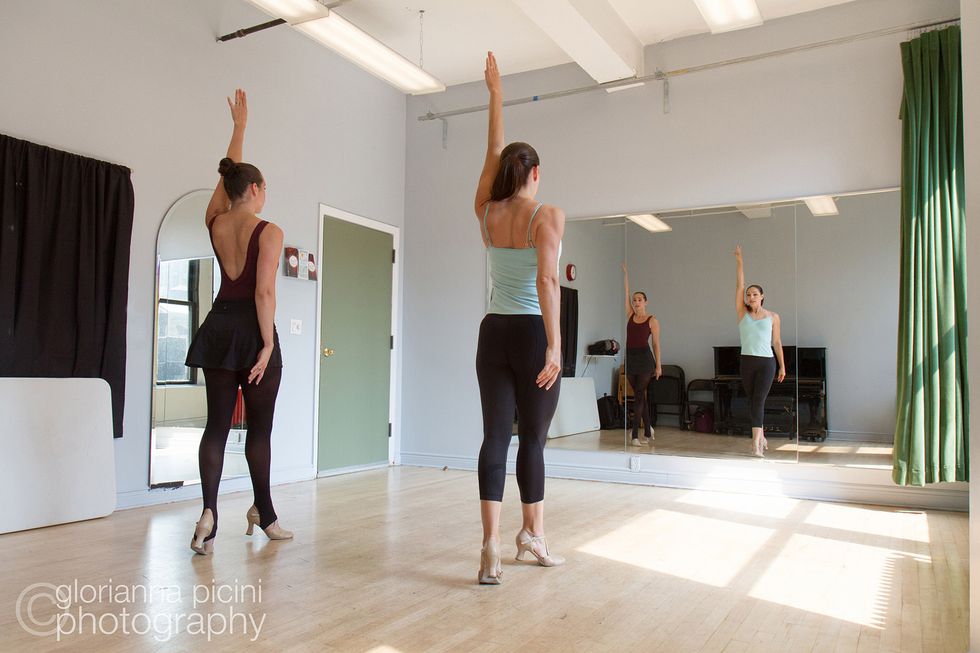
During the first cut for the Rockettes audition, the combination is only demonstrated three times—you either get it or you don’t. But don’t stress if picking up choreography produces nightmares. Malkin’s success with her students proves it is a skill that can be learned. For starters, she suggests counting while learning choreography, otherwise you are already one step behind.
7. Focus on what’s in your control.
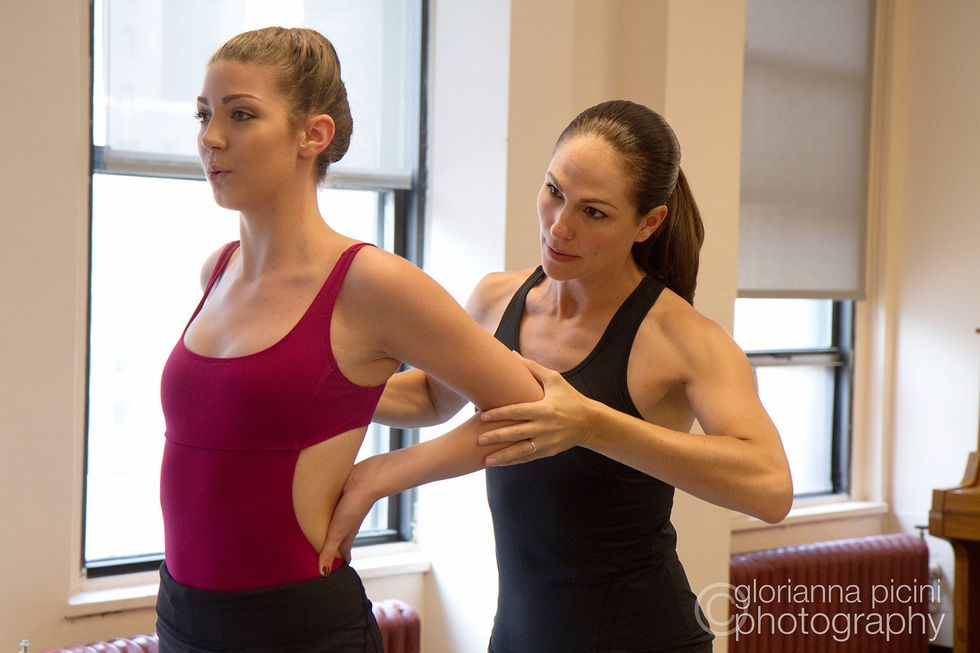
The requirements for being a Rockette are to be 5’6″-5’10.5″ tall and proficient in ballet, jazz and tap. If a dancer does not meet those height requirements, it is out her control. But the technical and artistic requirements are completely within the dancer’s power, and Malkin says those factors are the only ones worth worrying about.
8. Practice good audition etiquette.
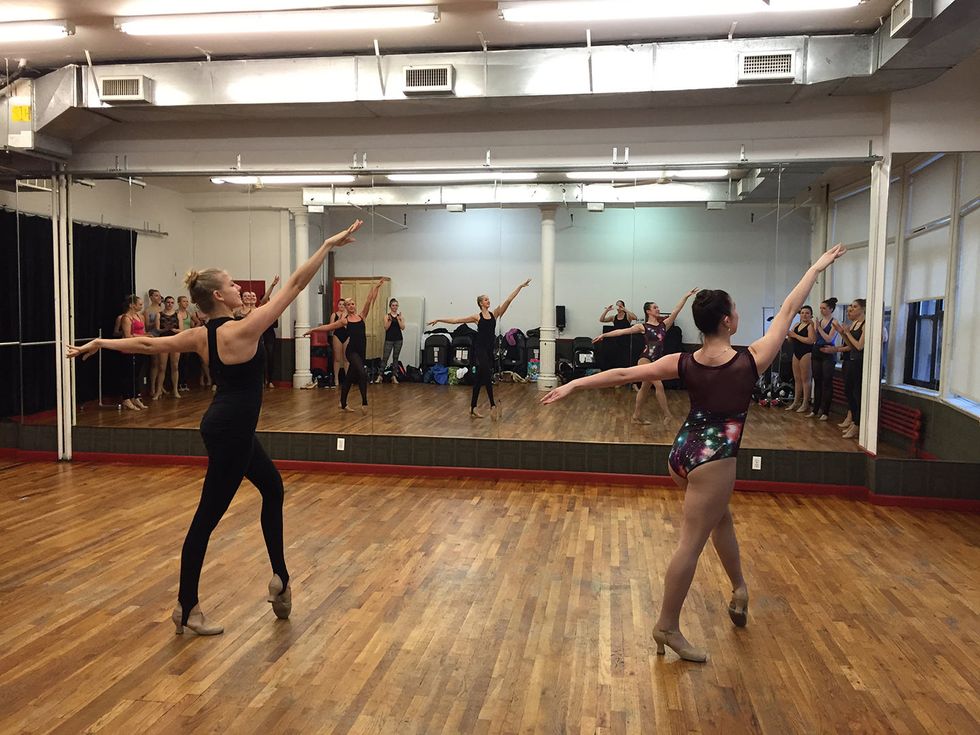
If you get cut, simply say thank you and leave promptly. “You are never allowed to ask casting directors why you didn’t make the cut,” Malkin says. “That’s my job as a coach to identify.” If you do get to the end of an audition or callback, a simple thank you will do–no handshake required. Thank you notes are not required after auditions, but Malkin does advise sending handwritten notes to anyone involved in casting once a job is completed, saying you enjoyed the opportunity and hope to work with them again in the future.
